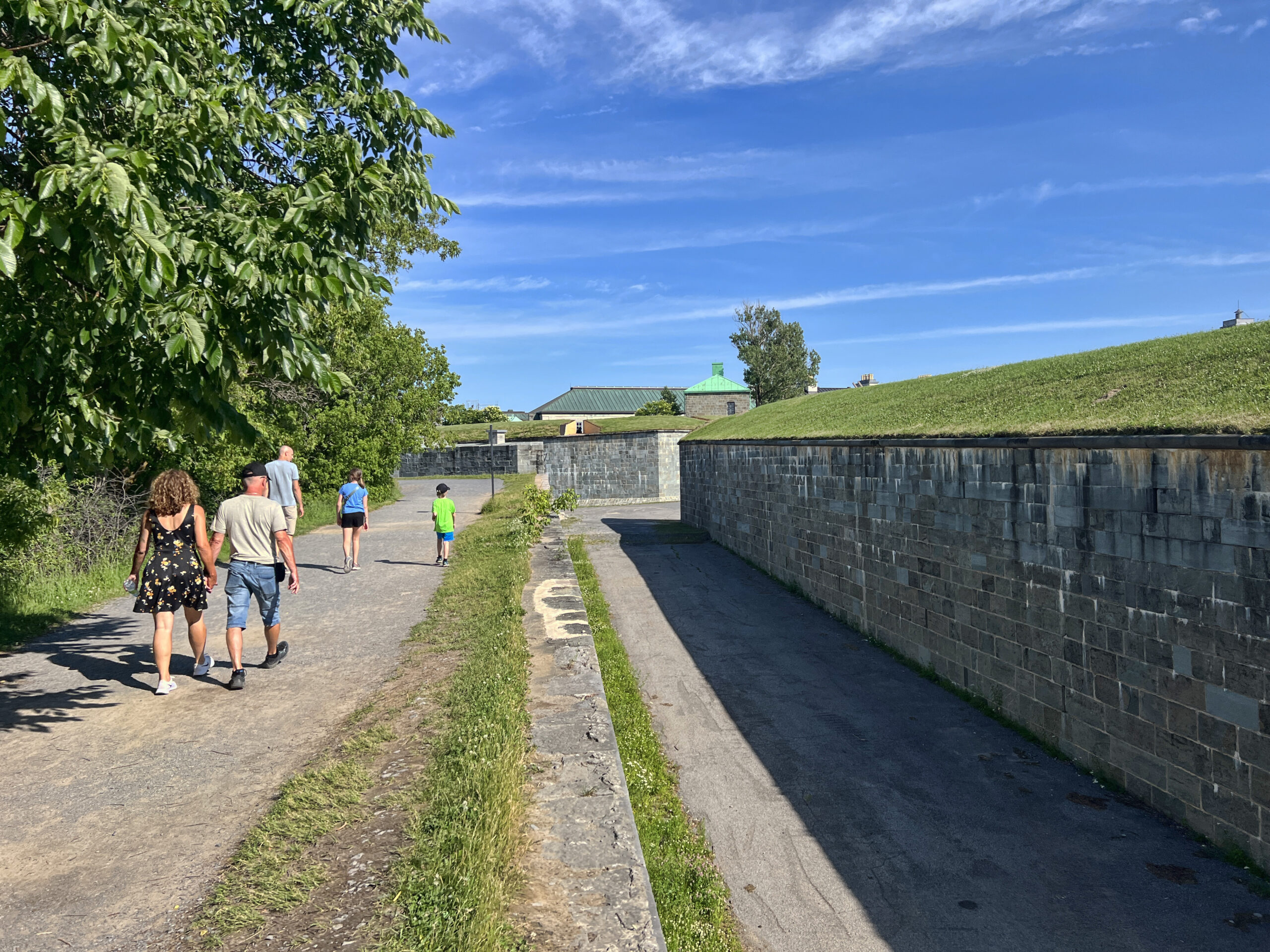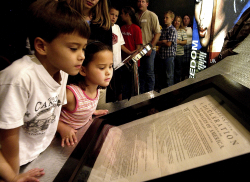
It is increasingly fashionable in some progressive circles to label non-indigenous North Americans as “settlers,” mere guests on indigenous land. Who would have thought that blood-and-soil nationalism—the odious ideology that claims that only certain races belong to certain territories—would return, wrapped in the mantle of social justice?
This movement—call it “indigenous identitarianism”— is gaining traction across North America but has been especially influential in Canada, my home country. There, it has already begun to erode democratic decision-making in favor of race-based hierarchies. Americans would do well to look north to see how this path, if followed, could shape their own political and civic life.
Finally, a reason to check your email.
Sign up for our free newsletter today.
Indigenous identitarianism generally posits that North America’s non-indigenous residents should be considered second-class citizens, either legally or symbolically. It suggests that they continually express gratitude for the “opportunity” to live on a continent “owned” by indigenous peoples.
To illustrate: Deanne LeBlanc, an award-winning academic at the University of British Columbia, wrote in a 2021 issue of the Canadian Journal of Political Science that non-indigenous Canadians should “consider themselves ‘foreigners’ in need of invitation onto Indigenous lands,” even if their families have lived on this continent for several generations. Similarly, Kaitie Jourdeuil, an academic at Queen’s University, published a 2022 article in The Conversation arguing that indigenous peoples should be given the right to make and enforce laws over 89 percent of Canadian land. That would mean some degree of disenfranchisement for millions of people.
Progressives often justify these beliefs on the basis of tradition: if indigenous peoples have lived here for millennia, then this land is always theirs. Indigenous communities also allegedly have a special “spiritual” connection to the land—their religion grants them a supernatural right.
This right is alluded to in Article 25 of the 2007 United Nations Declaration on the Rights of Indigenous Peoples, which states, “Indigenous peoples have the right to maintain and strengthen their distinctive spiritual relationship with their traditionally owned or otherwise occupied and used lands, territories, waters and coastal seas and other resources.” Though this right can be used reasonably, as in protecting sacred sites, it can also be abused to justify extreme political views.
For example, in 1983, former Nisga’a chief James Gosnell reportedly told Canada’s then-prime minister Pierre Trudeau (father of Justin Trudeau) that God had assigned territories to specific races, and that indigenous people had been granted the entire Western Hemisphere. Trudeau rejected the argument: “God never said that the frontier of France runs along the Rhine or somewhere west of Alsace-Lorraine where the German-speaking people of France live.”
While the logic of indigenous identitarianism delegitimizes both European and non-European Canadians, progressives often engage in rhetorical gymnastics to exempt black communities from their critiques, while largely ignoring other non-European minorities altogether. For example, in a 2019 interview with Vice, indigenous lawyer and writer Chelsea Vowel claimed that someone counts as a “settler” only if they voluntarily moved to Canada to better their lives. Therefore, black Canadians cannot be settlers because their ancestors were forcibly relocated as slaves.
This argument makes little sense in Canada, where over 95 percent of today’s black population either arrived after the 1960s or are the descendants of such immigrants. In the United States, immigrants and their American-born children make up only 21 percent of the country’s black population, a still-sizable share. Should these black Americans be considered settlers? Should progressives establish a hierarchy in which some black people are legitimate inhabitants of North America and others are not?
Vowel and other indigenous identitarians have attempted to resolve these tensions by claiming that black immigrants cannot be considered “settlers” because they lack significant economic and political power. Their argument is not only deeply condescending but also suggests that European immigrants who arrived in Canada destitute, such as nineteenth-century Ukrainian-Canadians, should likewise be exempt from the settler label. Yet progressives never concede this point, revealing that indigenous identitarianism is primarily concerned with disparaging European-Canadians.
While indigenous identitarianism is all the rage in academia, a 2024 Leger poll commissioned by the Association for Canadian Studies found that only 23 percent of Canadians agreed with the statement: “I am a settler colonist in Canada.” Even this figure may be inflated, because the French translation asked respondents whether they were “descended from the first settlers of Canada.” While 48 percent of Francophone respondents said “yes” to this mistranslated question, only 17 percent of Anglophones did so with the more precise English wording.
Indigenous identitarianism’s unpopularity is understandable, given that it would require that a “correct” race exercise grossly disproportionate political power. Nonetheless, this is what some extremists want. The 2012 academic paper “Decolonization is not a metaphor,” considered a seminal text in decolonial studies, argues for “abandoning the hope that settlers may one day be commensurable to Native peoples” and defends “eliminating settler property rights” so that “all land is repatriated and all settlers become landless”—even if that means impoverishing 99 percent of the “settler” population.
Indigenous identitarianism is often focused on symbolism and moral theater. This is the variant popularly championed by white progressives, who prefer land acknowledgements and other rhetorical self-flagellation to making substantial material concessions to indigenous communities. Their overcompensation leads them to endorse ideas they would otherwise rightly see as repugnant.
Some progressives, for example, insist that no immigrant is illegal, and endorse open borders. But they also disdain the presence of North American “settlers”—even though these people are, from an indigenous perspective, simply illegal immigrants. For these progressives, whether an immigrant deserves immediate naturalization or consignment to permanent guest status apparently depends on his race.
Canadian philosopher Joseph Heath pointed out this “logical incompatibility” in a 2023 Substack post. He argued that if one truly believes the Canadian state is illegitimate, then mass migration into Canada must logically be seen as an ongoing settler-colonial project—and by that logic should likely be stopped. When he raised this point with indigenous scholars at various conferences, Heath noted, “most find the question rather uncomfortable to answer, because they want to play nice with the left, but when pressed a bit they admit that, to them, we are all just settlers.”
The same inconsistency appears in the practice of land acknowledgments. Imagine if France required immigrants to begin every event with a tribute to the country’s Gallic forebears and a declaration that the land was spiritually vested in Europeans—no progressive would accept it. Yet when similar claims are made in an indigenous context, they are celebrated. That progressives go to great lengths to shield black communities from the “settler” label suggests a tacit awareness of the moral contradictions at play.
These questions would be less pertinent if indigenous identitarianism were quarantined within academia. But in Canada at least, government policy is increasingly informed by this ideology.
In British Columbia, the provincial government has endorsed banning non-indigenous Canadians from some provincial parks for progressively longer periods of time (over three months in some cases). This is so that indigenous communities, as the so-called racial stewards of the land, can exclusively enjoy these spaces. This same government, which encourages immigrants to self-identify as “colonizers” and “uninvited guests,” also seemed poised to grant indigenous groups decision-making authority over 95 percent of the provinces’ public lands last year, until public outcry paused the scheme.
If this trend continues, British Columbia risks devolving into a two-tier society. Based on an imagined bond between blood and soil, one racial group—representing just 6 percent of the population—would wield control over nearly all of the province’s land. Americans should take note.
Photo by Creative Touch Imaging Ltd./NurPhoto via Getty Images
Source link














